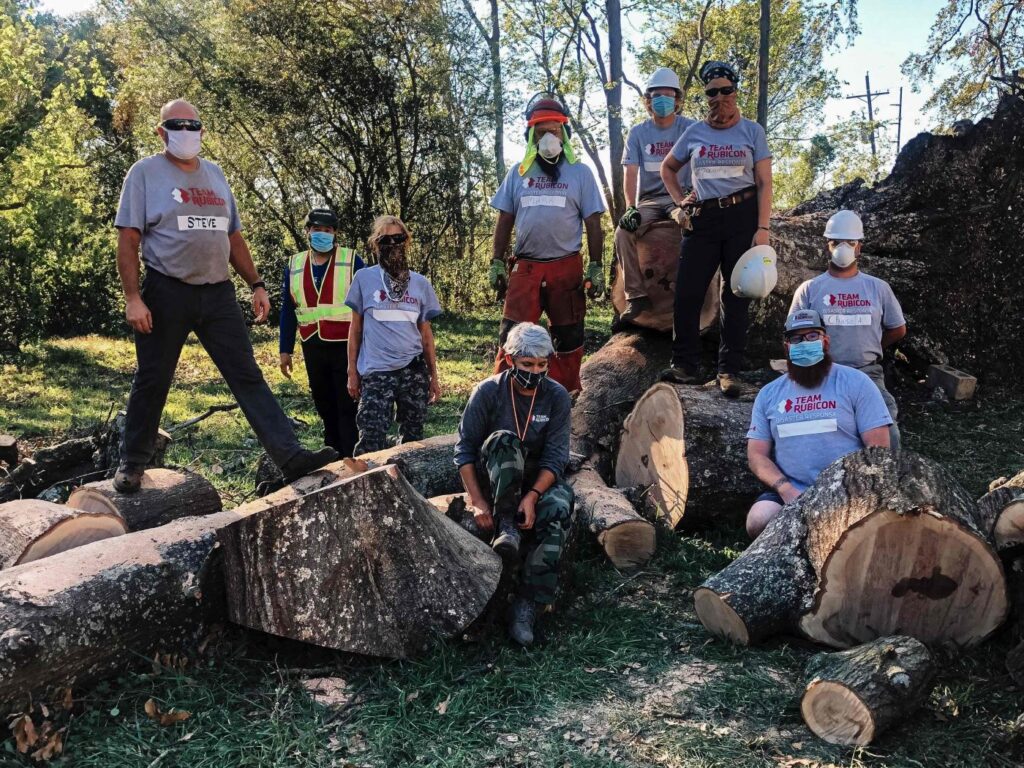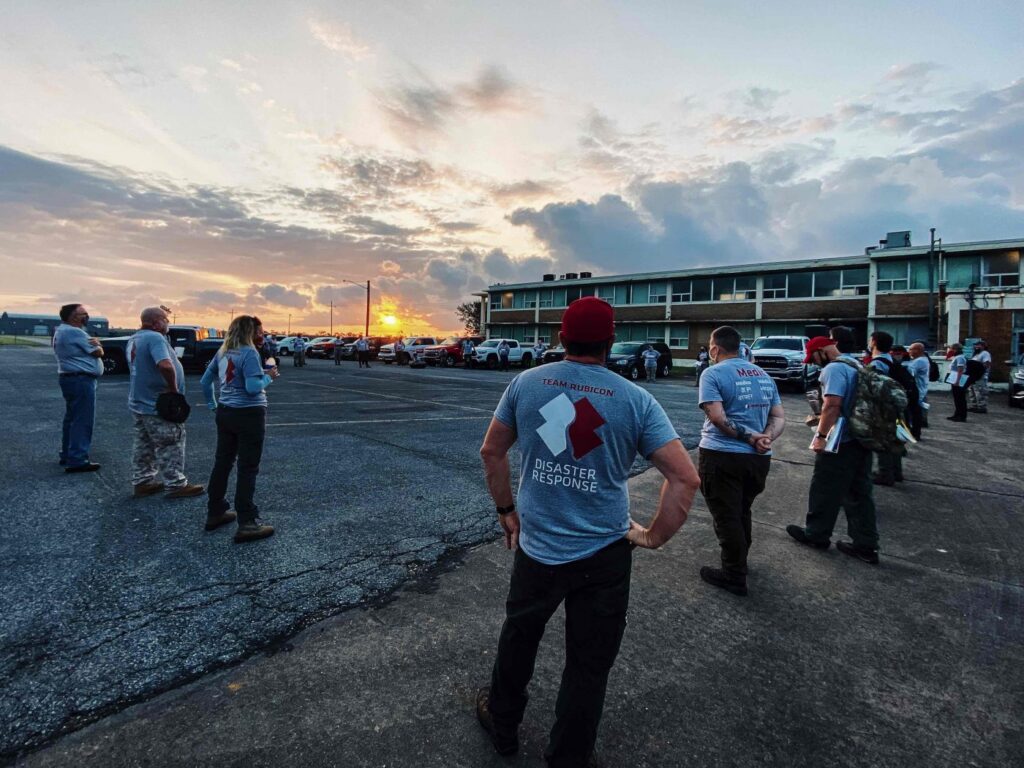In mid-March, when a stay-at-home order was issued in New York City, the hospitality industry was left with little recourse. I found myself wondering how was, I going to fill the void brought on by being furloughed. Having spent the last nine years working at an iconic New York City Hotel, life was about to change. Instead of sitting around bound by a new life where quarantine and pandemic become the new normal, I searched for meaning.
I began hearing stories about food insecurity ravaging neighborhoods nationwide. I asked myself, ‘how I could help?’ Seemingly out of nowhere, I received an email from a familiar organization, Team Rubicon. Since completing my graduate degree, I had had limited interactions with the veteran-led disaster response organization. Now, they were mobilizing food relief distribution operations across the U.S., including one in Brooklyn. I dug through the depths of my sock drawer for a now-snug grey shirt given to me some time ago. I had not had the opportunity to wear it since signing up in mid-2017.
A week later, I found myself riding the subway for the first time during the stay-at-home order. The ride from Queens to Brooklyn took about an hour and required changing trains three times. My fellow straphangers and I shared communal anxiety over the uncertainty of public transportation. In Brownsville Brooklyn, I met others who shared my sense of community. We joined the ranks of the NYC Parks Department and National Guard. Together, we spent hours loading Ubers with prepacked meals destined for homes of immune-compromised neighbors.
Resulting from my experiences in Brooklyn, I wanted to do more with Team Rubicon’s ongoing humanitarian efforts. Thus, I felt a need to become more involved leading me to reach out to local leaders about joining the New York State leadership team. As a newly minted leader, pride-filled my veins because I found my tribe.
Deploying for 2020 Hurricane Responses
In August, I deployed to operation Dover Down, Team Rubicon’s response to damage caused by Tropical Storm Isaias—and the three confirmed tornadoes it spawned—near Dover, DE. For 14 days, I got work done. I swamped 20-pound logs, assisted the logistics section chief, served food as the food unit leader, conducted site surveys, attended and passed the Sawyer 1 class, and attended a local city council meeting, representing Team Rubicon. After spending 14 days sleeping on a cot half my size in a high school gym, I could not wait for the next opportunity. The people of Dover showered us with gratitude. They left us thanking them for the opportunity to help out.
I would not have to wait long to serve again.

During demobilization in Dover, we received messages about deploying to Lake Charles, LA, in response to Hurricane Laura, which left more than 800,000 residents in the region without power. The next few months were a whirlwind of flights, cots, people, and getting things done.
On September 5, as we rode into Louisiana from Houston, staring at downed trees, compromised power lines, and masses of debris littering the roads leading to our forward operating base, I realized how fortunate I had been to only be dealing with the pandemic back home. The song Fortunate Son played in my head as we drove with our elbows out open windows, witnessing firsthand what Mother Nature is capable of. Recalling an image from a movie about the Vietnam war and never having served, this was my swan song. From the despair, camaraderie takes shape. As individuals place their differences aside for the common good of the people we serve, the true essence of Team Rubicon becomes evident.
Having personal freedom to deploy and the desire to continue responding to disasters, I boarded another flight from LaGuardia to Houston. This time I was dispatched to Orange, TX. There I continued supporting Team Rubicon’s ongoing Hurricane Laura response. I led a team of six sawyers as their strike team leader (the most meaningful deployment for me, and where it clicked). Within a day of unpacking from this deployment, I was again invited to board a plane bound for Pensacola, FL. In western Florida and southeastern Alabama, Team Rubicon’s response to Hurricane Sally, Operation Damn the Torpedoes, was taking place.
Lessons Learned, and A New Calling
Team Rubicon fueled my newly found calling: Disaster response, humanitarian aid, and hazard mitigation became a way of life for me. I deployed six times (for seven to 10 days at a time) to operations Crying Eagle and Damn the Torpedoes. The take-home lessons learned from being of service were invaluable.
In life, there are few times we are afforded a-ha moments: volunteering with Team Rubicon during the 2020 Hurricane season amidst a global pandemic one of those. Suddenly, the notion of returning to the hospitality industry is not a priority; being of service is my greater calling. I intend to continue assisting those in need, whether after a disaster strikes, in response to a humanitarian crisis, or helping those seeking grant assistance. These new skills honed from operations Dover Downs, Crying Eagle, and Damn the Torpedoes will prove invaluable as I look to a post-pandemic way of life.

I will always remember the lessons learned from field leadership as a strike team leader, coupled with the teachings of fellow Greyshirts who gave themselves. As strangers (sometimes 300) Greyshirts crossing paths with one another in Houston area airports sharing a simple glance, we knew what the other was there to accomplish.
It takes a unique individual who goes to an unfamiliar land and gives of themselves. Team Rubicon fosters those who want to step into the arena for the betterment of others. Regardless of one’s background—military veteran or civilian, civil servant or medical professional—we find solace in knowing we are not alone. Life does not have to be experienced in solitude. If you ever want to be a part of something, I urge you to consider joining Team Rubicon.



